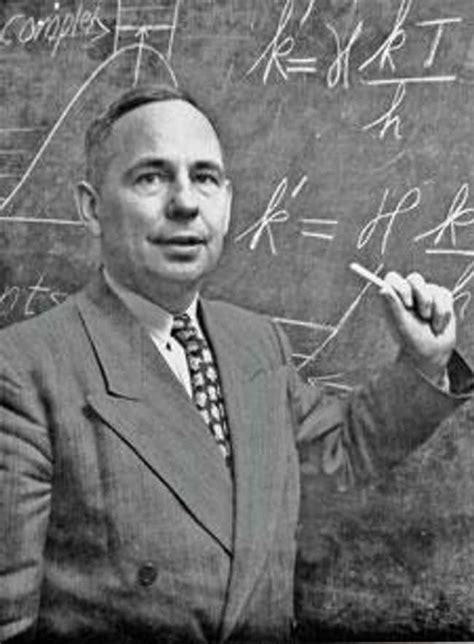A Quote by Henry B. Eyring
Apparent contradictions between religion and science often have been the basis of bitter controversy. Such differences are to be expected as long as human understanding remains provisional and fragmentary.
Related Quotes
This much I can say with definiteness - namely, that there is no scientific basis for the denial of religion - nor is there in my judgment any excuse for a conflict between science and religion, for their fields are entirely different. Men who know very little of science and men who know very little of religion do indeed get to quarreling, and the onlookers imagine that there is a conflict between science and religion, whereas the conflict is only between two different species of ignorance.
Religion and science, for example, are often though to be opponents, but as I have shown, the insights of ancient religions and of modern science are both needed to reach a full understanding of human nature and the conditions of human satisfaction. The ancients may have known little about biology, chemistry, physics, but many were good psychologists.
Science has only two things to contribute to religion: an analysis of the evolutionary, cultural, and psychological basis for believing things that aren't true, and a scientific disproof of some of faith's claims (e.g., Adam and Eve, the Great Flood). Religion has nothing to contribute to science, and science is best off staying as far away from faith as possible. The "constructive dialogue" between science and faith is, in reality, a destructive monologue, with science making all the good points, tearing down religion in the process.
There isn't anything to worry about between science and religion, because the contradictions are just in your own mind. Of course they are there, but they are not in the Lord's mind because He made the whole thing, so there is a way, if we are smart enough, to understand them so that we will not have any contradictions.
The differences between religions are only differences involving the pathways that lead toward the practice of directly experiencing higher levels of perception and understanding. All religions are paths to a metaphorical mountain-top variously named Wisdom, enlightenment, self-realization, the kingdom of heaven, righteousness, etc. Differences that lead to violence and persecution are based on a corrupted relationship to the teachings and practices of religion.
There are very real differences between science fiction and realistic fiction, between horror and fantasy, between romance and mystery. Differences in writing them, in reading them, in criticizing them. Vive les différences! They're what gives each genre its singular flavor and savor, its particular interest for the reader - and the writer.
Everyone wants to be happy; happiness is a right. And while on a secondary level differences exist of nationality, faith, family background, social status and so on, more important is that on a human level we are the same. None of us wants to face problems, and yet we create them by stressing our differences. If we see each other just as fellow human beings, there'll be no basis for fighting or conflict between us.
Should a priest reject relativity because it contains no authoritative exposition on the doctrine of the Trinity? Once you realize that the Bible does not purport to be a textbook of science, the old controversy between religion and science vanishes . . . The doctrine of the Trinity is much more abstruse than anything in relativity or quantum mechanics; but, being necessary for salvation, the doctrine is stated in the Bible. If the theory of relativity had also been necessary for salvation, it would have been revealed to Saint Paul or to Moses.
Science is like society and trade, in resting at bottom upon a basis of faith. There are some things here, too, that we can not prove, otherwise there would be nothing we can prove. Science is busy with the hither-end of things, not the thither-end. It is a mistake to contrast religion and science in this respect, and to think of religion as taking everything for granted, and science as doing only clean work, and having all the loose ends gathered up and tucked in. We never reach the roots of things in science more than in religion.








































